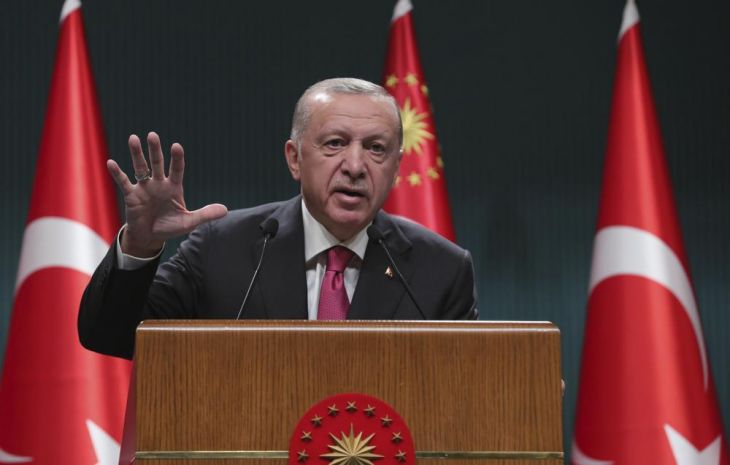On May 28th, Turkish Islamist President Recep Tayyip Erdogan was re-elected for another five years against his left of center opponent by 52 per cent to 48 per cent. His party won a majority of seats in parliament, leaving the opposition with no clout whatsoever.
This win is surprisingly narrow since Erdogan has jailed many of his political opponents and journalists, closed many opposition newspapers, and alienated the country’s Kurdish minority.
Indeed, Erdogan’s poor performance in managing the recent earthquake in which over 50 thousand people died, together with the sad state of the Turkish economy may well have mitigated against a wider margin of victory.
The result is a deeply divided country that shows no indication of coming together anytime soon.
Erdogan first came to power as Prime minister in 2003 and was hailed as a reformer in his early years. He slowly evolved into an authoritarian leader who ran for the ceremonial Presidency in 2014 when he could no longer run for prime minister. His party lost its majority in parliament for several months in a 2015 vote, and then months later, in 2016, Turkey witnessed its first violent attempted coup for decades.
Buoyed by his supporters, Erdogan countered the coup attempt successfully, fired some 150 thousand civil servants whom he believed opposed him, and detained over 50 thousand people.
He narrowly won a 2017 referendum granting him sweeping presidential powers, including the right to impose a state of emergency and appoint top public officials as well as intervene in the legal system. A year later, he enjoyad an outright victory in the first round of a presidential poll.
Since then, Turkey has evolved into an authoritarian state. Erdogan has developed a close friendship with russian president Putin, going so far as to purchase major weapons systems from Russia at the displeasure of his NATO allies.
Erdogan has also refused to sanction Russia for its invasion of Ukraine, providing Putin with an economic ally who allows Russia to circumvent U.S. and EU sanctions.
Putin appears to be his role model, and Erdogan seems to want to emulate him and other Central Asian autocrats as he melds Islamism, nationalism and national nostalgia into a solid political brand.
In foreign policy, Erdogan has emulated his Russian friend in his attempts to revive the Ottoman Empire, expanding his country’ reach into the Middle East, the Turkic republics of Central Asia, and Africa.
Sami Hamdi, the managing director at International Interest, a political risk firm focusing on the Middle East, said that Erdogan’s policies are also aimed at increasing Turkey’s soft power, particularly in the Muslim world, a continuation of the legacy of the Ottoman Empire, which ruled vast swaths of the Middle East, North Africa and the Balkans for centuries.
“At the same time, Turkey’s rapidly expanding influence is rooted in Erdogan’s ability to capitalize on Islamic soft power via his ‘Islamist’ rhetoric, enabling him to advance rapidly both politically and economically into multiple regions,” he recently told Al Jazeera.
In Libya, Turkey intervened to support the United Nations-recognised Government of National Accord (GNA) in Tripoli against eastern-based forces and in 2020, backed Azerbaijan in a war with Armenia over the disputed Nagorno-Karabakh region.
Erdogan had sought to rebrand Turkey as a free agent, preferring to meld his relationship with the West as well as pursuing close ties with Iran. He has courted China and Russia, intervened in Libya and Syria, and continues to battle Kurdish independence forces. He has also improved relations with Israel.
Buy will his growing economic problems force him to turn once again towards the West to secure much needed foreign investment.
Is the West interested?
Reports indicate that the EU is appalled at Erdogan’s democratic backsliding. The U.S. refuses to sell Turkey sophisticated weapons systems or equipment given growing Turkey’s growing military ties with Russia.
Can Turkey survive another Erdogan presidency? It’s hard to tell at this point. He doesn’t follow a deliberate foreign policy course, preferring to depend on personal relations with leaders and a more transactional form of diplomacy.
Time will tell if his country can overcome its problems and revert towards a more democratic form of leadership. For now, it looks like status quo will remain the name of the game in both domestic and foreign policy.
Edition: Emilio Gómez
Segob trabaja una serie de eventos para visibilizar a las mujeres
Jairo Magaña
Estos edificios albergan valiosos equipos informáticos que pueden representar un objetivo bélico
Afp
Los hombres recibieron penas de hasta 18 meses de cárcel
Afp
El país da pasos hacia una reforma a la ley de hidrocarburos y la aprobación de una amnistía
Efe
